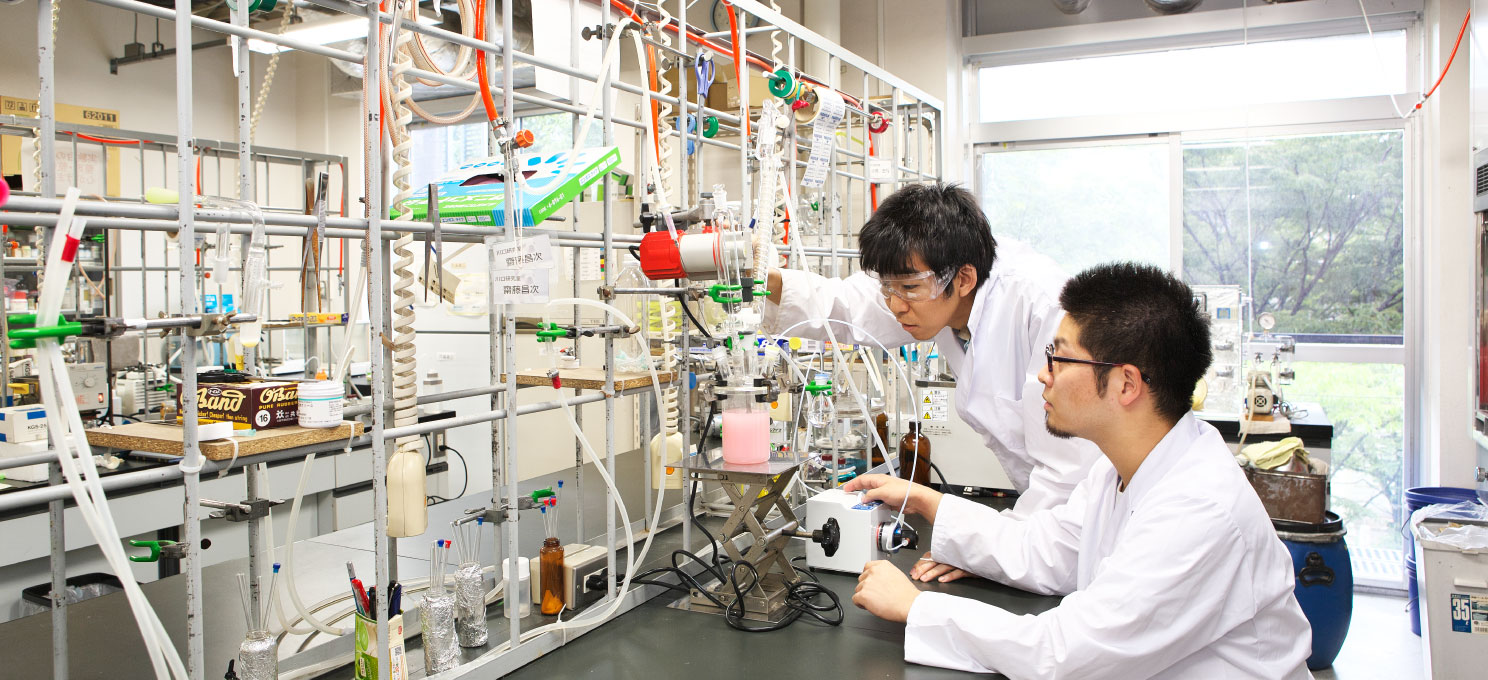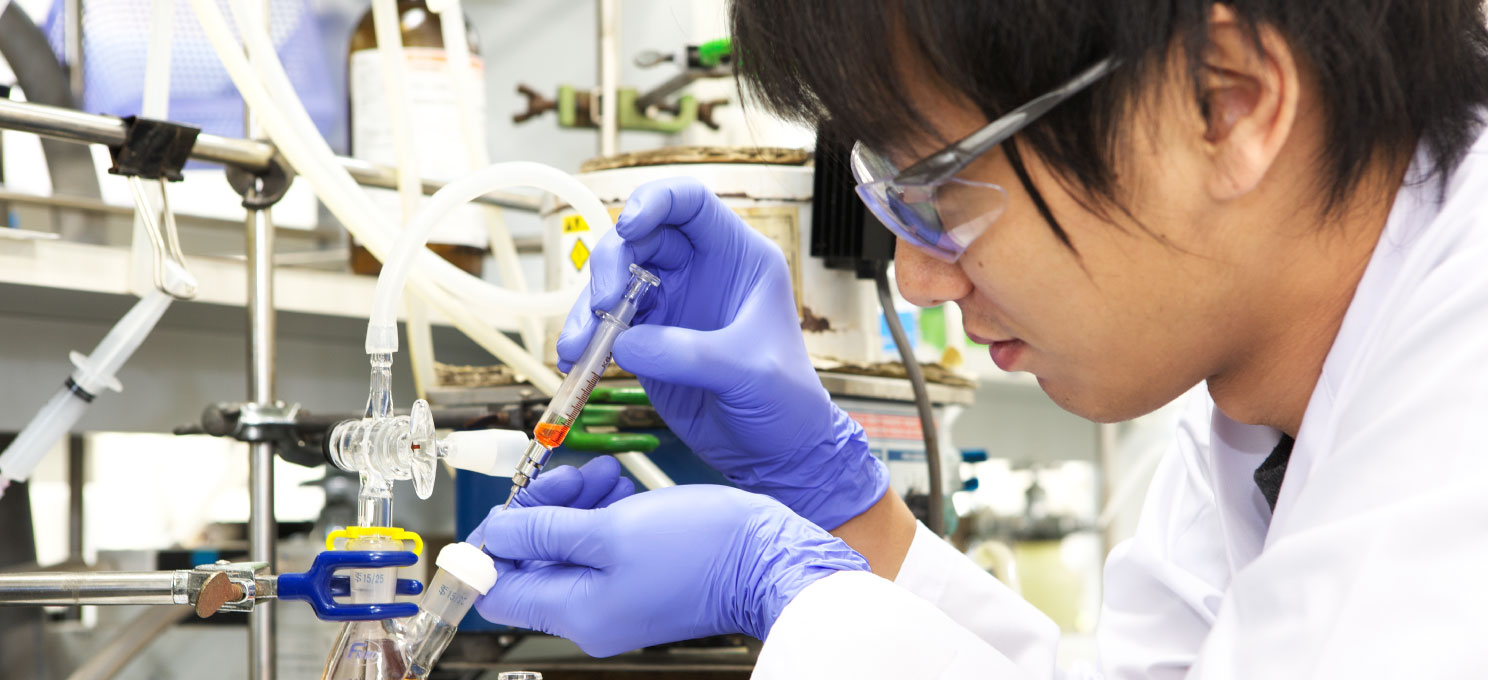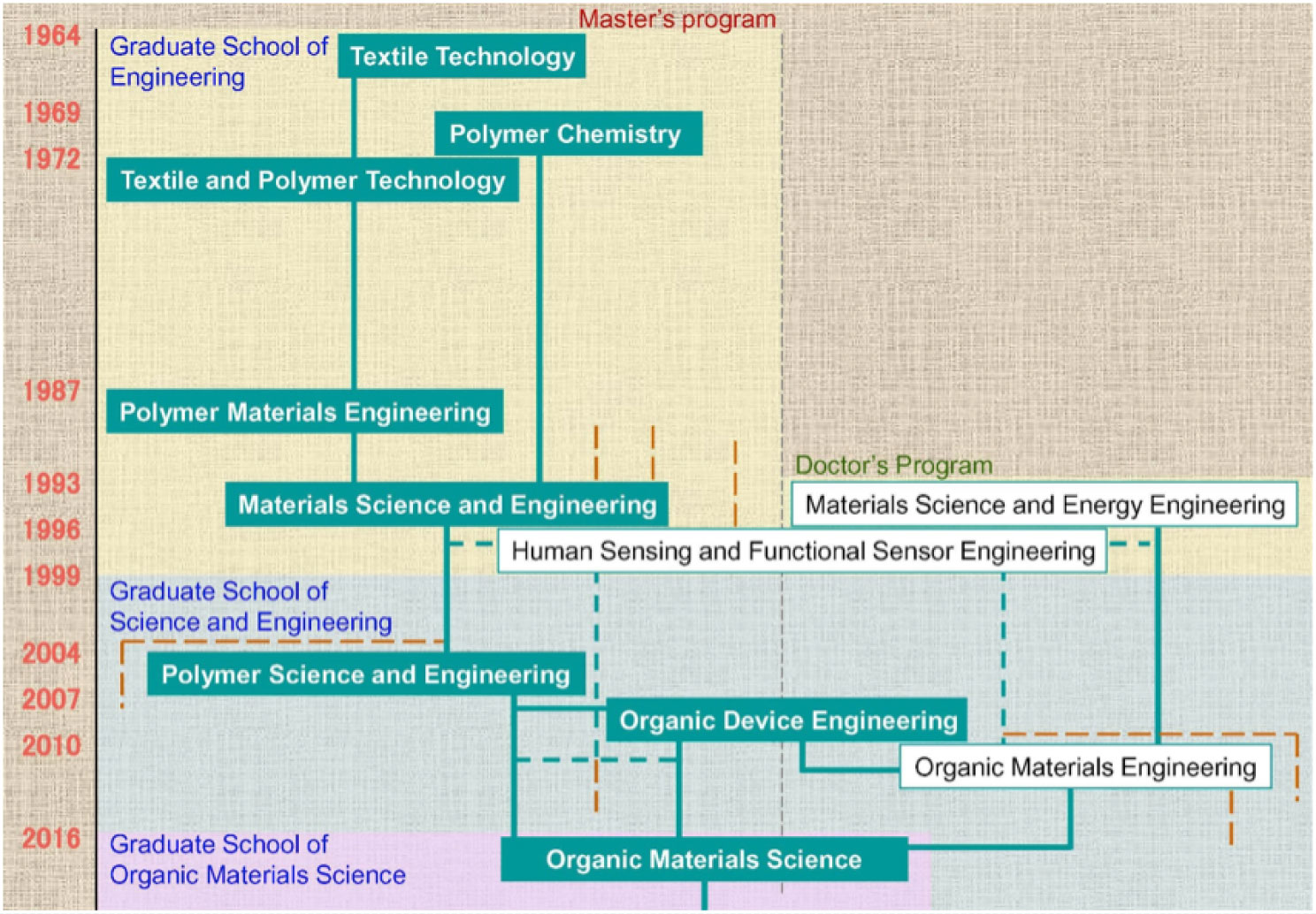Courses & Programs


Home > Courses & Programs
Polymers and other organic functional materials are one of the essential material categories supporting our modern way of life; improvement of their performance as well as the development of novel materials and functions are being actively pursued. In the future, the utilization of organic materials in interdisciplinary areas and the applications in other fields are expected to generate novel value-added organic material systems. In the Graduate School of Organic Materials Science, Yamagata University, education and research are not limited to simply acquiring knowledge of the fundamentals of organic materials, especially in relevance to applications. The education and research are expected to seed interdisciplinary collaborations and inspire an integrated, system-level understanding of organic materials.
Yonezawa Higher Technical School, the predecessor of the Faculty of Engineering, Yamagata University, was established in 1910 with the department related to fibers and textiles. In 1913, Professor Itsuzo Hata at the Yonezawa Higher Technical School succeeded in producing rayon for the first time in Japan. Since then, the tradition of research on organic materials has continued in Yonezawa for over a century. The new Graduate School of Organic Materials Science was established in April 2016 by integrating the following departments of the Graduate School of Science and Engineering: the Department of Polymer Science and Engineering and the Department of Organic Device Engineering for the master's program and the Department of Organic Materials Engineering for the doctoral program. The new graduate school consists of the Department of Organic Materials Science with the enrollment capacity of 65 for the master's program and 10 for the doctoral program.
In the new Graduate School, education and research will be pursued to achieve the following objectives and be guided by the following principles:

The following qualities are desirable in the applicants for the Master's program:
In addition to the above, the following are expected in the applicants to the doctoral program:
In response to the rapid transformation of the societal landscape and the industrial structure in the 21st century, the objective is to create "a University that can foster the ability of students to independently pioneer novel domains". Towards this end, the education of the students - from post graduate to undergraduate - will be enhanced to reflect a broader perspective. Fundamental and applied research and development will be vigorously pursued. Creativity and scholarship that can inspire increasingly sophisticated science and technology that can shine at the international stage will be actively supported.
The curriculum for the master's program is as follows:
The curriculum for the doctoral program is as follows:
The Master of Engineering degree will be awarded upon registration for the prescribed term and acquiring the prescribed number of course credits as approved by the graduate school; submission of a master's thesis, and passing the thesis and the final examinations; and the satisfaction of the following requirements:
The Doctor of Engineering degree will be awarded upon registration for the prescribed term and accumulation of the prescribed number of course credits as approved by the graduate school; submission of a doctoral thesis, and successful completion of the thesis and the final examinations; and the satisfaction of the following requirements:

